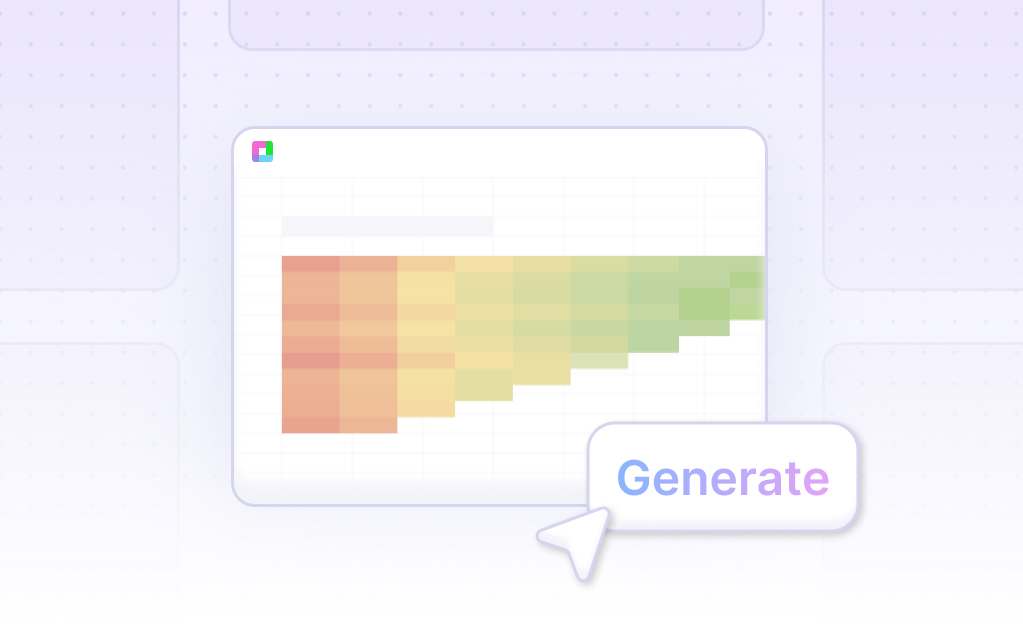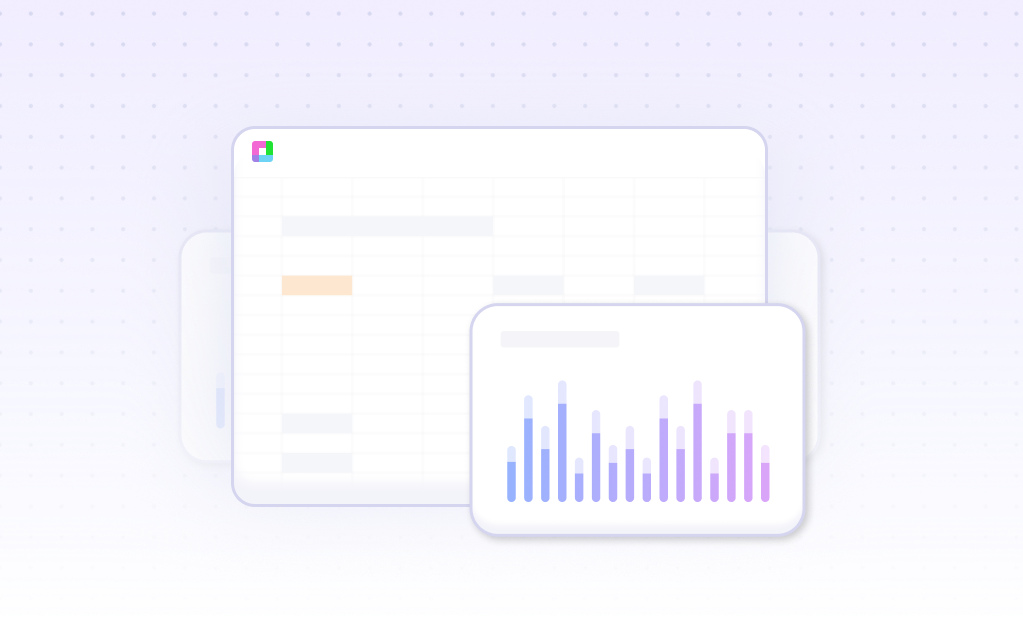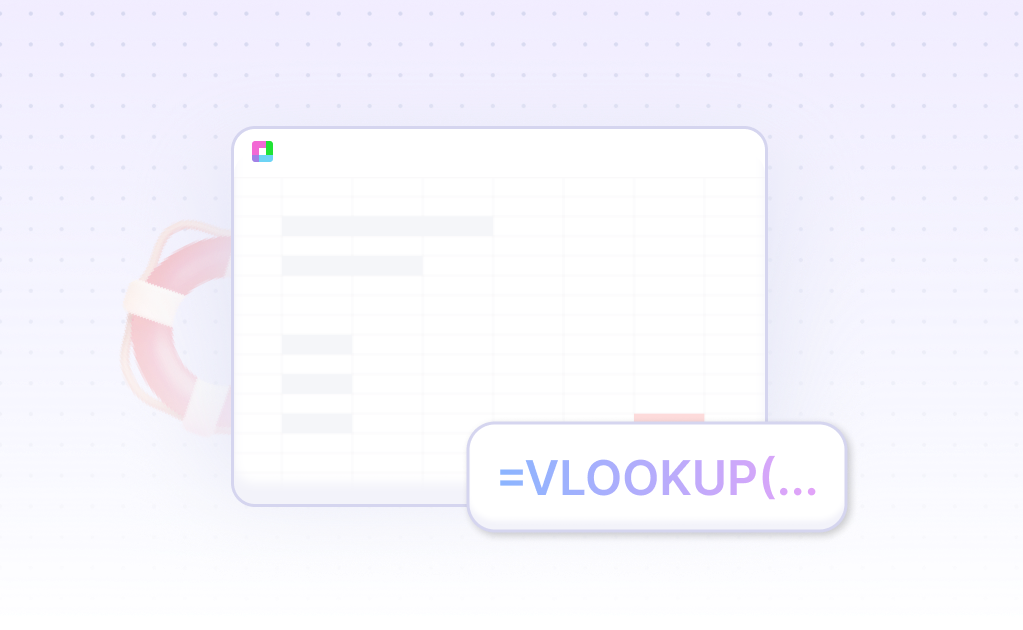
Introduction
A Requirement Traceability Matrix (RTM) Excel template streamlines the process of tracking and managing project requirements throughout their lifecycle. This essential project management tool ensures comprehensive requirement coverage, aids impact analysis, and facilitates regulatory compliance. Sourcetable, an innovative AI-powered spreadsheet platform, combines Excel's functionality with ChatGPT's natural language processing capabilities.
In this guide, we'll explore how Sourcetable enables you to generate a customized Requirement Traceability Matrix Excel template - try it now.
See how easy it is to generate a Requirement Traceability Matrix Excel template with Sourcetable

Requirement Traceability Matrix Excel Template Guide
A Requirement Traceability Matrix (RTM) is a document that links requirements throughout the validation process. An RTM Excel template helps track business requirements, test cases, and defects in a structured format.
Sourcetable, an AI-powered spreadsheet platform, can generate customized RTM templates that streamline project management. The platform creates templates with essential columns including requirement ID, description, test cases, verification method, and current status.
Key Template Components
A Sourcetable-generated RTM template typically includes:
The matrix helps ensure complete requirement coverage, facilitates impact analysis, and maintains clear documentation throughout the project lifecycle.
Generate Custom RTM Templates with Sourcetable
Sourcetable combines Excel's powerful functionality with ChatGPT's natural language processing to create the ideal Requirement Traceability Matrix generator. Simply describe your project's requirements and specifications, and Sourcetable instantly produces a customized RTM template.
AI-Powered Spreadsheet Creation
Transform your requirements into a structured RTM without manual formatting. Sourcetable's AI understands natural language commands, eliminating the need for complex Excel formulas or time-consuming template modifications.
Convert your RTM data into professional visualizations and reports with a single command. Sourcetable's intelligent interface adapts to your project's needs, ensuring complete traceability from initial requirements to final implementation.
Benefits of Using a Requirement Traceability Matrix Excel Template
A Requirements Traceability Matrix (RTM) Excel template streamlines project management by systematically linking project requirements to deliverables. This essential tool ensures complete requirement coverage, facilitates impact analysis, and enhances project documentation quality.
RTM Excel Template Advantages
The template provides a structured framework for tracking requirements throughout the project lifecycle. It enables quick identification of missing requirements, supports regulatory compliance, and simplifies stakeholder communication. Teams can track changes efficiently and maintain clear documentation of requirement relationships.
Generating RTMs with Sourcetable
Sourcetable's AI-powered platform transforms RTM creation through natural language processing. Users can generate complex Excel templates instantly, reducing manual effort and potential errors. The platform's intelligent automation accelerates template customization and updates, making requirement management more efficient and accurate.
By leveraging Sourcetable's capabilities, teams can create and modify RTM templates using simple commands, eliminating the need for complex Excel formulas and manual formatting. This approach significantly reduces template development time while maintaining professional quality and consistency.
Different Types of RTM Excel Templates with Sourcetable
Sourcetable enables teams to create various types of Requirement Traceability Matrix (RTM) templates through its AI-powered platform. The software streamlines RTM creation by automatically generating templates based on project requirements and use cases.
Forward RTM Template
Forward RTM templates in Sourcetable map requirements to test cases, ensuring comprehensive test coverage. Teams can track how each requirement links to specific test scenarios, validating that all requirements undergo proper testing.
Backward RTM Template
Backward RTM templates track test cases back to their originating requirements. This template helps teams verify test coverage and identify any test cases without corresponding requirements, preventing scope creep.
Bi-directional RTM Template
Bi-directional RTM templates combine forward and backward traceability, offering complete visibility of requirement-test relationships. Teams can analyze impacts in both directions, making it ideal for complex projects requiring thorough change management.
Custom RTM Template
Custom RTM templates allow teams to tailor matrices to specific project needs. Sourcetable's AI capabilities help generate templates that incorporate unique project attributes, compliance requirements, and organizational standards.
Use Cases for Requirements Traceability Matrix Template
Frequently Asked Questions
What is a Requirements Traceability Matrix (RTM) Excel template?
A Requirements Traceability Matrix Excel template is a document that helps track and manage project requirements by linking them to their associated test cases, design elements, and other project deliverables. It enables teams to ensure all requirements are properly tested and implemented throughout the project lifecycle.
What are the key benefits of using a Requirements Traceability Matrix?
A Requirements Traceability Matrix helps ensure complete test coverage, identifies gaps in testing, maintains requirement relationships throughout the project lifecycle, and provides visibility into requirement implementation status. It serves as a critical tool for project managers and stakeholders to track requirement fulfillment.
How can I generate a Requirements Traceability Matrix template?
You can quickly generate a Requirements Traceability Matrix template using Sourcetable, an AI-powered spreadsheet platform. Simply describe your needs in natural language, and Sourcetable will create a customized RTM template instantly, saving time compared to building one from scratch in Excel.
Conclusion
Sourcetable's AI-powered Requirement Traceability Matrix Excel template generator streamlines the process of creating and managing requirement documentation. By combining Excel's functionality with ChatGPT's natural language capabilities, teams can quickly generate comprehensive RTM templates without manual setup. The platform offers an efficient solution for tracking requirements across project lifecycles, ensuring compliance and visibility.
Start transforming your requirement management process today with Sourcetable's free trial. This powerful tool enables teams to focus on delivering value rather than spending time on spreadsheet configuration, making it an essential resource for project managers and business analysts.
Recommended Excel Templates
Connect your most-used data sources and tools to Sourcetable for seamless analysis.
Frequently Asked Questions
If your question is not covered here, you can contact our team.
Contact Us



